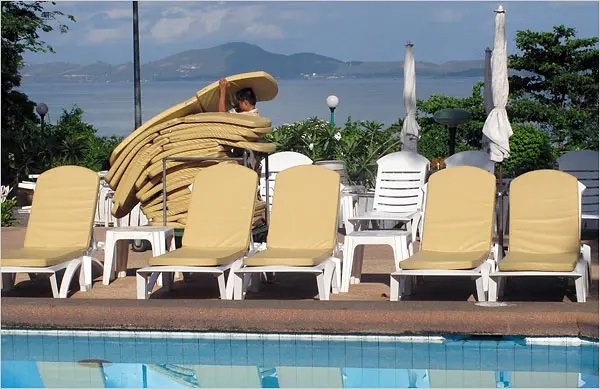Key points
- Several properties—particularly smaller independent resorts and boutique hotels in the southern provinces—have begun temporary closures and staff layoffs in an effort to stem mounting losses.
- According to this Thailand Hotel News report, many in the industry are expressing deep frustration at what they describe as a widening disconnect between government tourism figures and the on-the-ground situation faced by operators.
- The prolonged slump in occupancy levels has become a wake-up call for both the private sector and policymakers to align strategies based on real economic conditions rather than embellished statistics.
Thailand Hotel News: Tourism Recovery Claims Clash with Reality
Across Thailand, hotel and resort owners are facing a grim reality that sharply contrasts with the rosy narratives being circulated by official tourism bodies. From Bangkok to Phuket, operators are reporting occupancy rates that have plummeted to levels not seen since the height of the COVID-19 crisis. Several properties—particularly smaller independent resorts and boutique hotels in the southern provinces—have begun temporary closures and staff layoffs in an effort to stem mounting losses. According to this Thailand Hotel News report, many in the industry are expressing deep frustration at what they describe as a widening disconnect between government tourism figures and the on-the-ground situation faced by operators.

Hotels across Thailand are facing their toughest season yet, with occupancy levels plunging to record lows.
Image Credit: StockShots
Hotels Struggle as Tourist Numbers Fail to Meet Expectations
While various official agencies continue to release upbeat data suggesting a steady recovery and increasing tourist arrivals, many local hoteliers say the statistics do not reflect actual occupancy trends. They claim that even during the supposedly busy months, bookings are inconsistent and often last-minute, with room rates having to be slashed dramatically to attract guests. Some resort operators in Phuket and Krabi have admitted that their occupancy has fallen below 30 percent, forcing them to suspend certain services or reduce staff to part-time hours to cut operational costs. In Bangkok, hotel managers report similar woes, stating that despite international flight connections improving, corporate and long-stay bookings remain disappointingly low.
Operators Demand Transparency and Realistic Strategies
Industry insiders are calling for more transparency and coordination between tourism authorities and hotel associations. They argue that the government’s tendency to inflate tourist arrival numbers—often counting transit passengers or short cross-border visitors—has created a false sense of recovery. This misrepresentation, they say, not only undermines the credibility of official reports but also misguides financial and marketing decisions within the sector. Several hotel owners have expressed concern that policymakers are detached from the operational hardships faced by properties that continue to battle high utility costs, rising wages, and the lack of tourists.
Economic Strain and Regional Disparities Intensify
Hotels in the southern regions, which rely heavily on foreign arrivals, are among the hardest hit. Meanwhile, northern destinations such as Chiang Mai and Pai are struggling with reduced domestic spending power and fewer international tour groups. Industry experts warn that unless immediate relief measures or targeted marketing strategies are introduced, the next few months could see a wave of permanent closures, particularly among independent and family-run establishments.
Industry’s Plea for Support
Amid this growing crisis, many hoteliers are urging the Thai government to provide emergency tax relief, promotional funding, and incentives for domestic tourism. They emphasize that without such interventions, Thailand’s hotel landscape—once celebrated for its diversity and world-class hospitality—could face irreversible damage. The situation serves as a stark reminder that recovery must be built on authentic data and proactive policies, not optimism alone.
The prolonged slump in occupancy levels has become a wake-up call for both the private sector and policymakers to align strategies based on real economic conditions rather than embellished statistics. If the gap between government rhetoric and hotel realities continues to widen, Thailand’s global reputation as a tourism powerhouse could face lasting harm.
For the latest on the Thai hotel industry, keep on logging to Thailand Hotel News.

